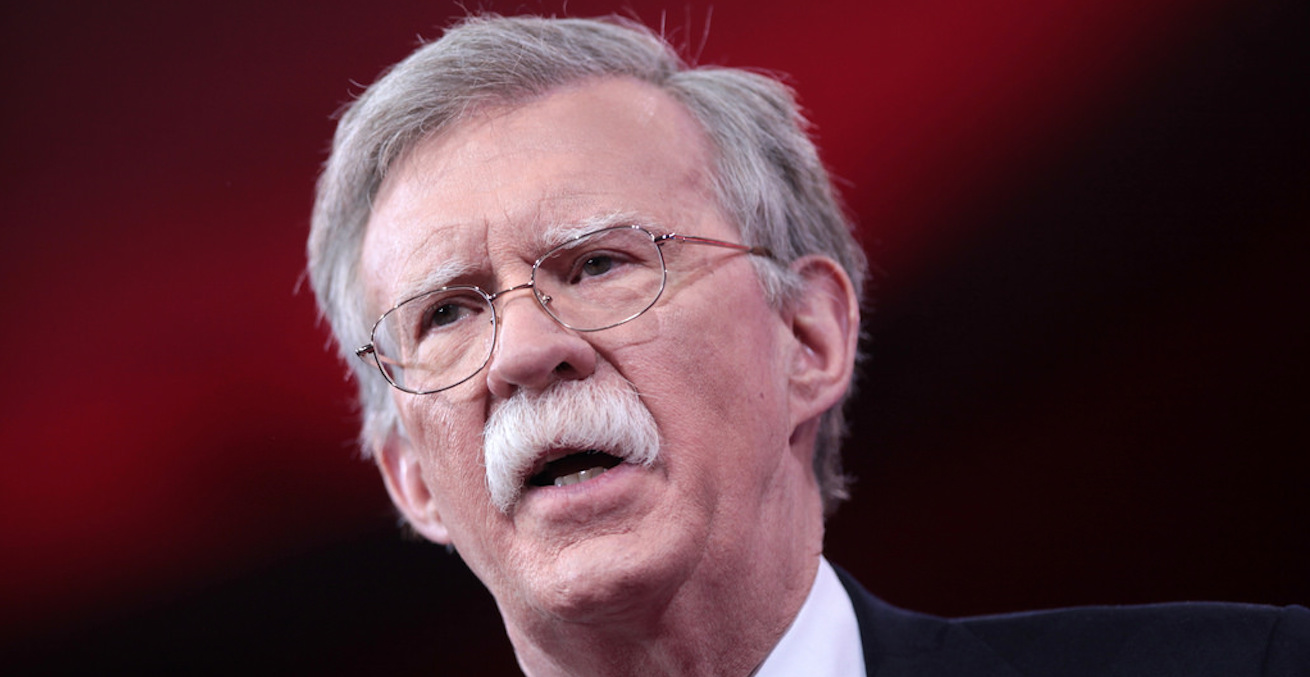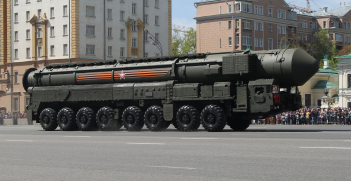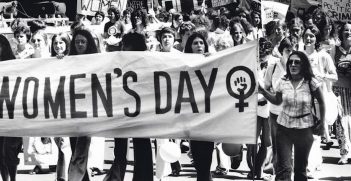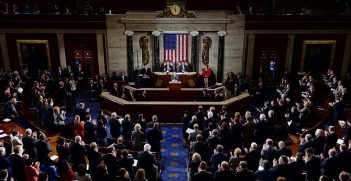Will Bolton Endanger Australia?

The Americans, Winston Churchill is supposed to have said, will do the right thing after they have exhausted all the alternatives. Exhausting America’s alternatives could be a long and dangerous process under the Trump administration.
The daily chaos in the White House can be imagined. President Trump successively sacked a dozen or so of the senior officials and press spokespeople he first favoured, and has since dismissed some of their replacements. He has had to be restrained from sacking Robert Mueller, the special counsel inquiring into allegations of interference in the 2016 elections. He drew the curtains while thousands of schoolchildren were protesting outside, advising them to stay off his lawns, not to trample on his daffodils, and go home. His third wife seems to be avoiding him.
Yet Mike Pompeo has agreed to take over the demoralised State Department from Rex Tillerson, whose finest hour as secretary of state may have been when he described the president as a “fucking moron”. Gina Haskell is willing to give up her covert preoccupations, which include torture black sites, and take over the CIA. And John Robert Bolton’s smiles at being chosen to succeed HR McMaster as national security adviser are invisible only because of his dour demeanour and his walrus moustache.
Bolton, after all, has been waiting a long time for this. He failed to get congressional confirmation following his unilateral ‘recess’ appointment by George W. Bush as ambassador to the United Nations in 2005-6, and no wonder: he loathed the organisation and insulted it regularly. If the UN building in New York lost 10 storeys, he famously said, it would make no difference. He did not seek to disabuse middle Americans of their conviction that Secretary-General Kofi Annan was the devil incarnate, bent on having the UN take over the United States. He undid years of patient efforts in the General Assembly to modernise and democratise the UN on its 60th anniversary by declaring as soon as he arrived that he had more than 100 objections to the reform document, and so demolished it. The reform he wanted was for there to be a single veto and for the US to be the only nation holding it.
Once a protégé of ultra-conservative US Senator Jesse Helms, Bolton held positions in the Reagan and GHW Bush administrations and was reported to be involved in the Iran-Contra affair. Waiting out the Clinton and Obama years, Bolton worked in law firms and was a senior fellow at the American Enterprise Institute where he wrote books and papers on his pet themes: that the Iraq war was justified; that Iran needed regime change; and that the US should pre-emptively strike North Korea. He said the same on Fox News. The consequences, as long as they include making America great again, did not and do not appear to worry him. He wants a new state, presumably for the Kurds, to be excised from Iraq and Syria. He wants a “swift takeover” of North Korea by the South, and in May when the nuclear agreement with Iran comes up for renewal, he wants to overturn it by having the US reimpose sanctions.
The son of a Maryland fireman, Bolton avoided service in Vietnam by pre-emptively enlisting in the National Guard. He graduated summa cum laude from Yale Law School, where Hilary Rodham and Bill Clinton were fellow students: but he wasn’t in their Ivy League. No matter how successful, he was an outsider in supposedly classless America, like Trump. But Bolton, twice married and a Lutheran, became a director of the neo-conservative Project for a New American Century, which from 1997 planned to achieve dominance for the US in the post-Cold War world, particularly in the Middle East. The neocons inherited a century-long fixation with oil and Israel, which the US shares with Britain.
In September 2000, just a year before the attack on the World Trade Center, neocon member Donald Kagan co-wrote Rebuilding America’s Defenses, proposing the need for “revolutionary change”. But the authors warned that its advent would be delayed unless there was a “catastrophic catalysing event—like a new Pearl Harbour”. They were not alone in anticipating it: both Chalmers Johnson and Samuel Huntington did too. What makes Bolton frightening today is that in January this year he seemed to be advocating another such catalyst: “Without a major event where people pull together, it [national unity] is hard to do. But I would like to do it without that major event because usually that…is not a good thing.”
Bolton considered running for president in 2012 and 2016, telling an interviewer that the people wanted a president with the capacity to lead during a crisis and defend the national interest. While he waited for the call, Bolton chaired another group, the Gateston Institute, whose members were far-right multimillionaires with a penchant for both discrimination against Muslims and Holocaust denial. Their founder was Rebekah Mercer, the heiress of Sears Roebuck. In spite of her Jewish heritage, the institute favoured the ultra-nationalist and anti-Semitic views expressed by Hungary’s Sebastian Gorda and the Netherlands’ Gert Wilders. In a publication, the institute praised as a “distinguished scholar” a blogger who supported Norwegian terrorist murderer Anders Behring Breivik.
Neither Trump nor Bolton seems concerned, in the current climate, about voter data analysis and Bolton’s use of it in election campaigns. In 2013 Bolton set up an independent funding operation which raised USD$11.3 million (AUD$14.7 million) for Republican candidates in the 2014 and 2016 elections, and paid more than USD$2 million for research and targeted digital video advertising to none other than Cambridge Analytica. Bolton has said he aims to raise and spend USD$25 million for Republican interests in the 2018 midterm elections.
In March 2018, reporting Bolton’s appointment to become national security adviser in early April, the New York Times described Trump’s foreign policy team as the “most radically aggressive” in modern memory. This presents a conservative Australian government, which thinks of itself as joined at the hip to the United States, with a quandary. Bolton believes international law endangers US sovereignty, while Australian ministers repeatedly advocate an international rules-based order. Bolton urges pre-emptive strikes on North Korea and Iran, which Australia does not, and which would certainly be illegal. Bolton opposes the one-China policy, which Australia supports. The need for independent Australian policymaking is already pressing, as several commentators (Hugh White, Michael Wesley, Michael Fullilove, Michael McKinley, John Menadue and others) agree. John Bolton’s radical aggression may make it even more urgent by actually endangering Australia.
Dr Alison Broinowski FAIIA is a former Australian diplomat and a visiting fellow at ANU. She is vice-president of Honest History and of Australians for War Powers Reform.
This article is published under a Creative Commons Licence and may be republished with attribution.





